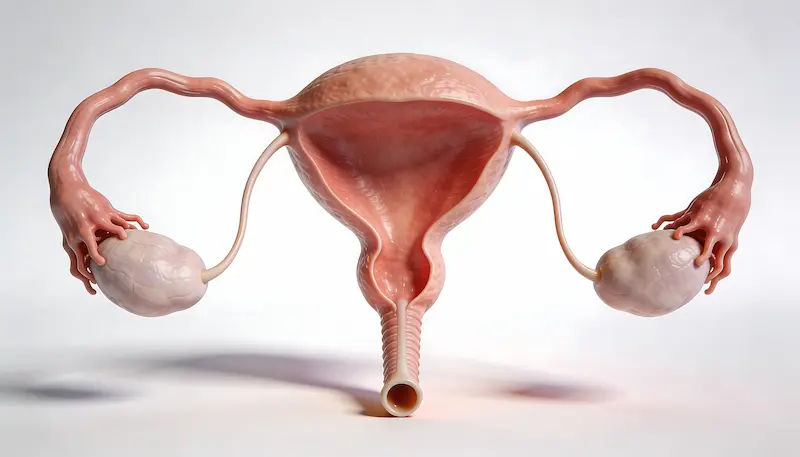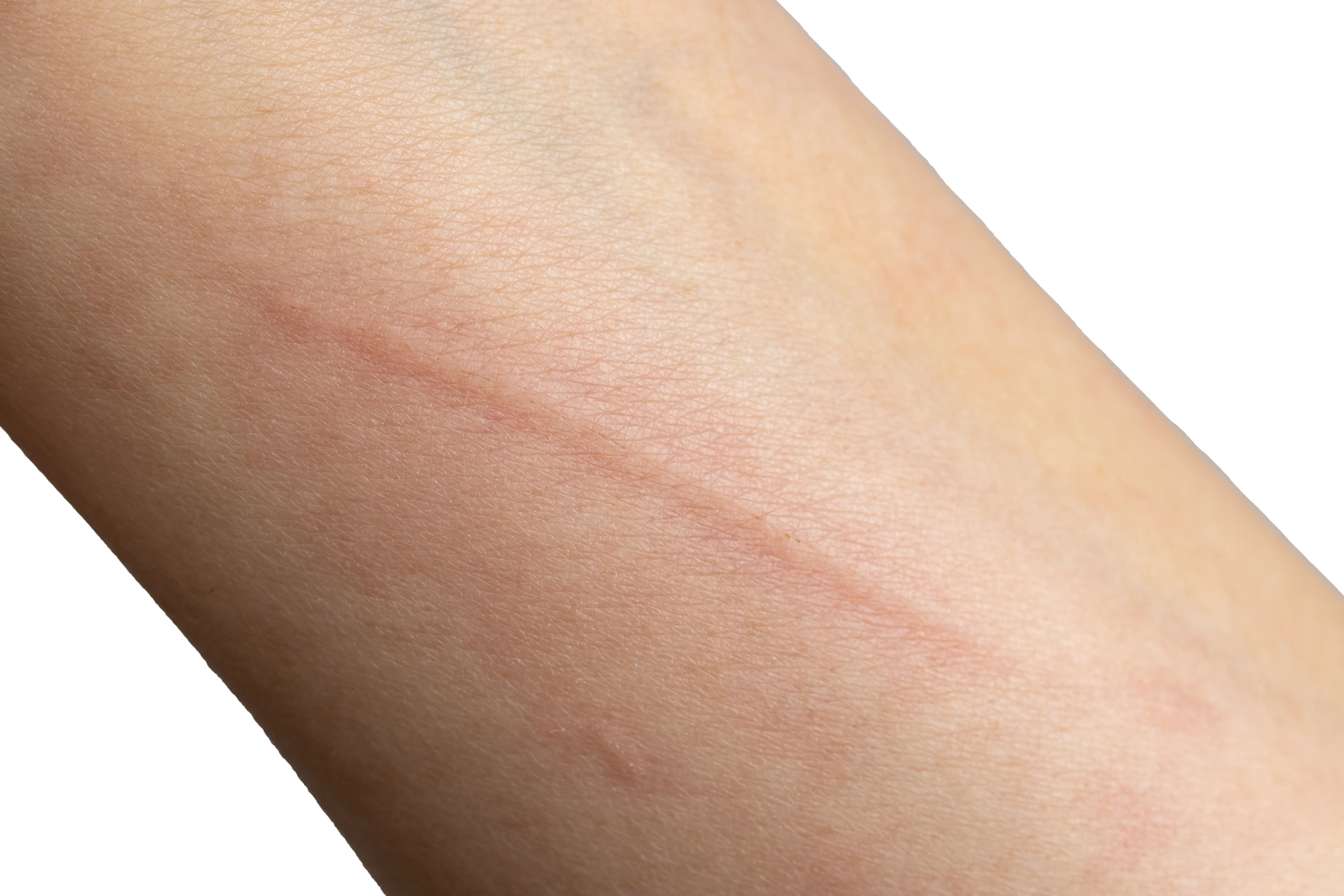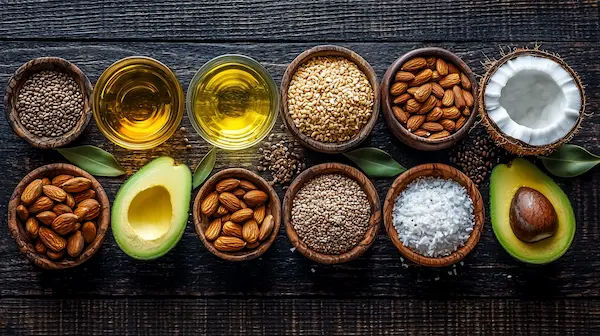How to Reduce Endometrial Thickness Naturally?
Learn safe, natural ways to reduce endometrial thickness through diet, exercise, and lifestyle changes. Support hormonal balance and improve uterine health without medication.

Written by
Last updated on 13th Jan, 2026
Endometrial thickness refers to the lining of the uterus, which naturally thickens and sheds during a woman’s menstrual cycle. However, excessive thickness (known as endometrial hyperplasia) can lead to health concerns, including irregular bleeding or an increased risk of uterine cancer. While medical treatments are available, many women prefer natural ways to manage this condition.
If you're looking for safe and natural ways to regulate your endometrial thickness, this article will guide you through simple lifestyle and dietary changes that can help.
Understanding Endometrial Thickness
The endometrium is the inner lining of the uterus, which thickens during the menstrual cycle to prepare for a possible pregnancy. If pregnancy doesn’t occur, the lining sheds, leading to menstruation. However, hormonal imbalances (especially excess estrogen) can cause the lining to become too thick, leading to:
Heavy or prolonged periods
Irregular menstrual cycles
Spotting between periods
Increased risk of endometrial cancer (in severe cases)
Natural Ways to Reduce Endometrial Thickness
Here are some ways to reduce endometrial thickness naturally:
1. Maintain a Healthy Weight
Excess body fat increases estrogen production, which can lead to a thicker endometrium. Losing weight through a balanced diet and regular exercise can help regulate hormones naturally.
Tips:
Engage in moderate exercise (walking, yoga, swimming) for at least 30 minutes daily
Avoid processed foods and sugary snacks
2. Eat a Hormone-Balancing Diet
Certain foods help regulate estrogen levels and support a healthy endometrial lining.
Foods to Include:
Cruciferous vegetables (broccoli, cauliflower, Brussels sprouts): help metabolize excess estrogen
Flaxseeds: rich in lignans, which balance hormones
Omega-3 fatty acids (found in fish, walnuts, chia seeds): reduce inflammation
Fiber-rich foods (whole grains, fruits, legumes): help eliminate excess estrogen from the body
Foods to Avoid:
Processed meats
High-fat dairy products
Refined sugars and white flour
3. Stay Hydrated
Drinking plenty of water helps flush out toxins and supports overall reproductive health. Aim for at least 8–10 glasses of water daily.
4. Herbal Remedies
Some herbs have been traditionally used to regulate hormones and support uterine health.
Turmeric: has anti-inflammatory properties
Green tea: contains antioxidants that may help balance estrogen levels
Chasteberry (Vitex): supports progesterone balance
Note: Always consult a doctor before trying herbal supplements, especially if you're on medication.
5. Manage Stress
Chronic stress disrupts hormone balance, leading to excess estrogen production.
Stress-Relief Techniques:
Meditation
Deep breathing exercises
Adequate sleep (7–8 hours per night)
6. Limit Hormone-Disrupting Chemicals
Certain chemicals in plastics, cosmetics, and household products mimic estrogen in the body.
Precautions:
Use glass or stainless-steel containers instead of plastic
Choose natural skincare and cleaning products
When to See a Doctor
While natural methods can help, consult a healthcare provider if you experience:
Severe or prolonged bleeding
Pelvic pain
Irregular periods that disrupt daily life
Your doctor may recommend hormonal therapy or further tests if needed.
Conclusion
Managing endometrial thickness naturally involves a combination of a healthy diet, regular exercise, stress management, and avoiding hormone disruptors. Small lifestyle changes can make a big difference in balancing hormones and improving uterine health.
If you're concerned about your endometrial thickness or experience unusual symptoms, consult a specialist for personalized advice. You can easily book a consultation or schedule a test through Apollo 24|7 for expert guidance.
Consult Top Gynaecologists
Consult Top Gynaecologists

Dr. Mona Yadav
Obstetrician and Gynaecologist
19 Years • MBBS, MD (Obstetrics & Gynaecology)
Dombivli
Nulife multispeciality, Dombivli

Dr. Debajyoti Goswami
Obstetrician and Gynaecologist
10 Years • MBBS,D.G.O(DNB),Adv. Infertility Tech.(AIIMS),Fellowship in Diabetes(U.K),Comprehensive Abortion Care(Govt. Of W.B), Certificate in Clinical Embryology(AIIMS, BHUBANESWAR)
Bankura
D.G Clinic, Bankura
(25+ Patients)

Dr. Parul Sharma
Obstetrician and Gynaecologist
8 Years • MBBS, MS (Obstetrics & Gynaecology)
New Delhi
THE DOCTORS NESST, New Delhi
Dr. K Anusha
Obstetrician and Gynaecologist
4 Years • MBBS, DGO
Yemmiganur
SRINIVASAA HOSPITAL, Yemmiganur

Dr. Asha Rani Singh
Obstetrician and Gynaecologist
24 Years • MBBS DGO
Delhi
Dr Asha Rani Singh Clinic, Delhi


.webp)

